You just treated your property with a pesticide. Now, the weather forecast calls for rain. That leaves you wondering if the rain will wash away the pesticide treatment, making you do the work again. We researched and found the information to ease your concerns.
Modern pesticides solutions can withstand the rain because of added ingredients, so the chances of washing them away with rainfall are minimal.
However, you also have to consider the type of treatment, the formula used, the treatment location, and the severity and duration of the rainfall.
Keep reading to find out more about pesticides and the effects rain has on the formula. We will also answer some additional questions that people commonly ask about pesticides.
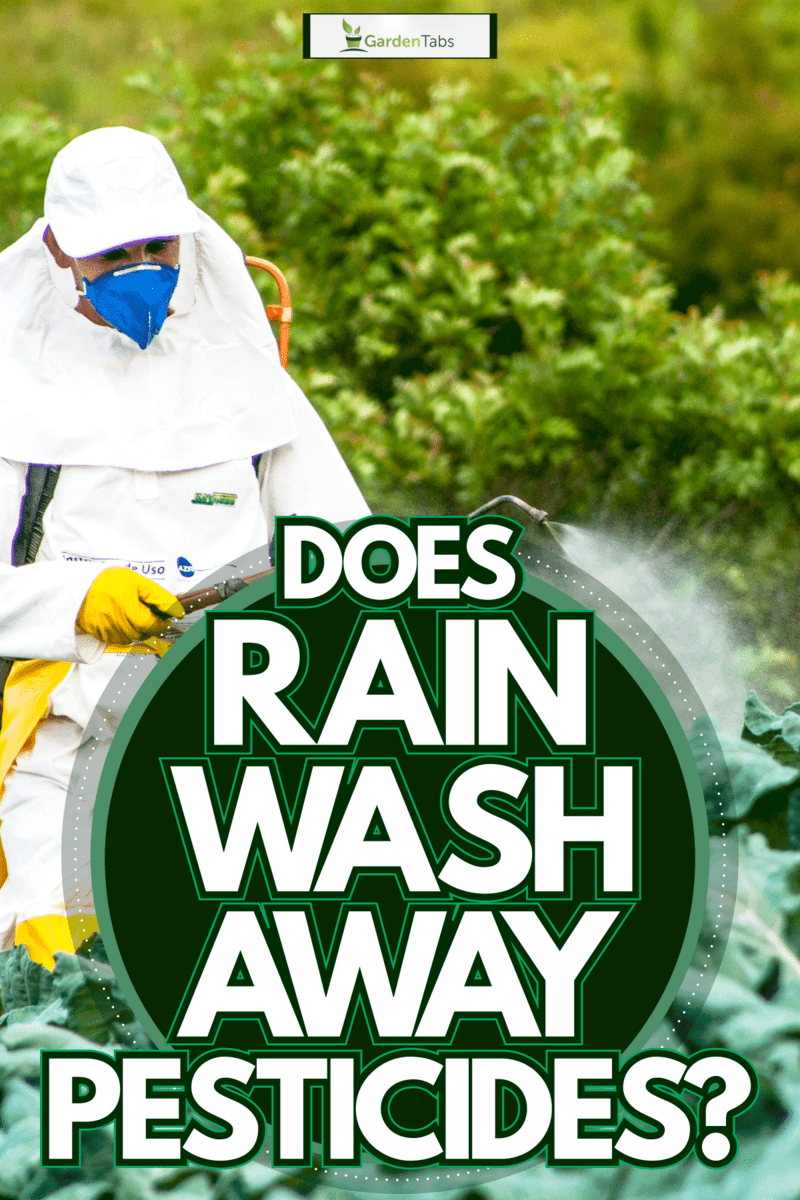
How Does Rainfall Affect Pesticides?
Generally, this question depends on your chosen product, so check the label instructions for complete information about your pesticide. Some formulas require rain or water to activate, while others need time to dry to be fully effective. In some instances, rain is favorable because it can create optimal conditions.
Most liquid pesticides solutions have ingredients in the formula to form a water-insoluble barrier to prevent the pesticide from being washed away when it rains or while watering plants.
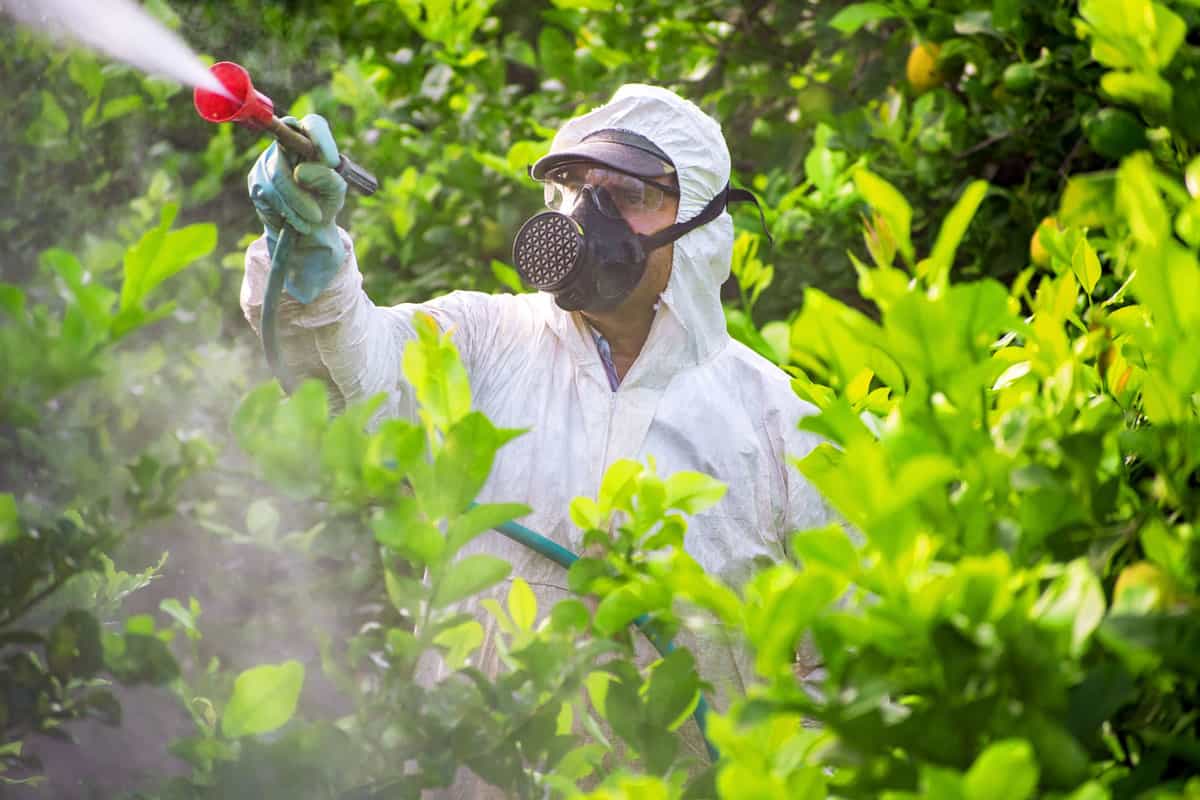
However, pesticides can dilute over time and exposure to heavy rainfall, diminishing their effectiveness and requiring reapplication.
If you are using a granular pest control treatment, water is necessary so that the rain can be helpful. Once the pellet distribution is complete, water is needed for activation and break down so the pesticide can leach into the ground.
If you have a professional pest control service contracted to treat your home, rest assured that they know how rain affects your specific treatment and will reschedule if rain is an issue.
How Long Does A Pesticide Need To Sit Before Rain?
Most liquid pesticides contain bonding agents that allow the pesticide to quickly dry and fully adhere to a surface in around twenty to thirty minutes. In addition, some formulas work fast, so long-term exposure isn't necessary for effectiveness.
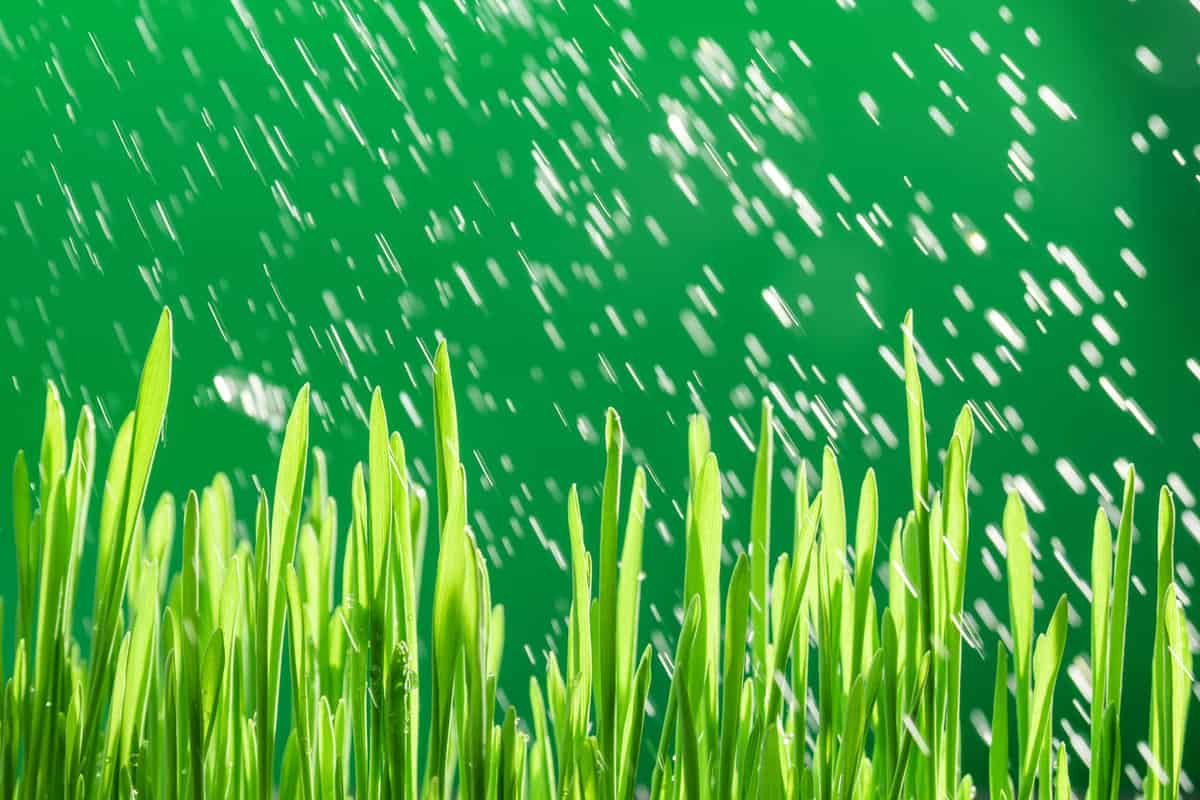
In most cases, modern advancements in the formulation process counteract common concerns, so a typical spring rain shower shouldn't be a big concern.
However, if using a pellet form of pesticide that requires moisture to work, distributing it right before you know it will rain is a good idea. You can let Mother Nature handle part of your work, saving you time and energy.
Can You Use Pesticides After It Rains?
Applying a pesticide after a light rain isn't a problem in most cases. There are situations in which the rain becomes an advantage.
For example, when treating termites and ants, the rainwater floods their homes, forcing them out into the open, making it possible to treat the insects directly, which increases effectiveness.
Another example is when water is needed to mix with the pesticide. After a rainfall, there may still be enough moisture in the ground to activate the pesticide saving you some additional effort.
However, if there has been heavy rainfall for several days with standing water where you need treatment, it is best to wait until the water has evaporated to apply your pesticide.
When Is The Best Time To Apply A Pesticide?
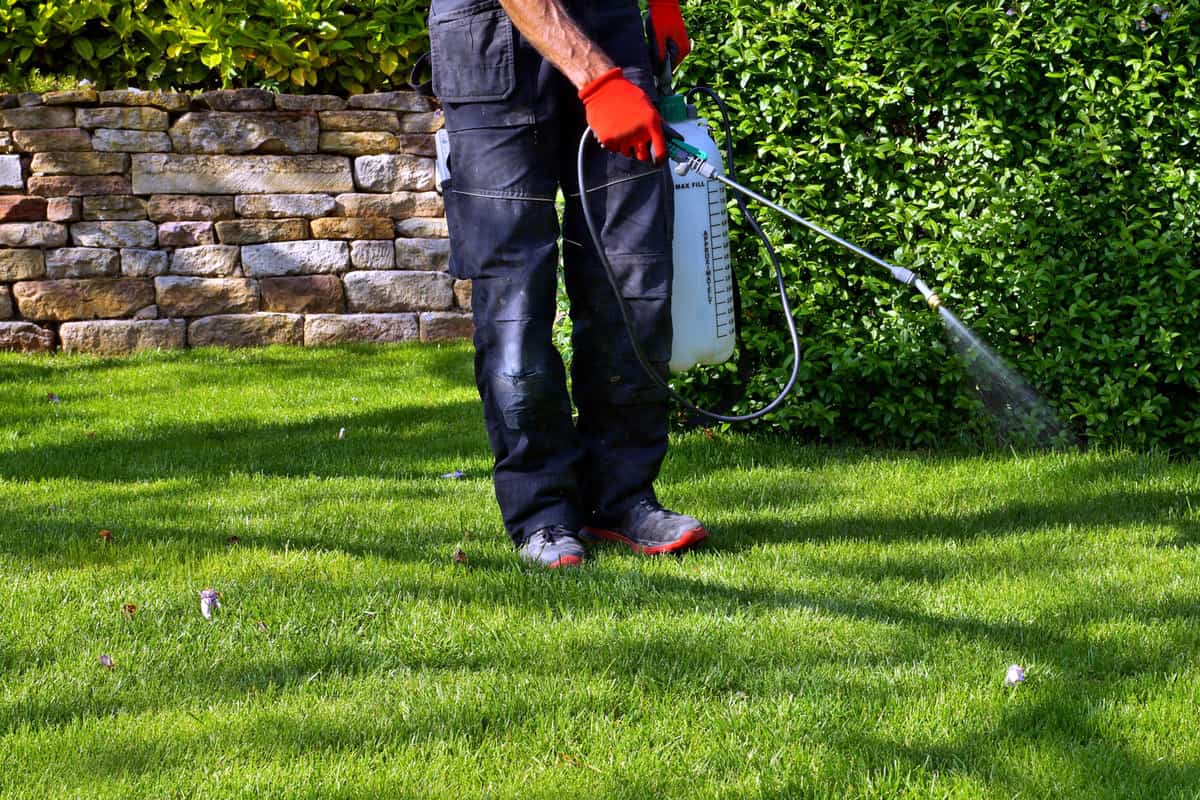
You should always read the instruction sheet included with your pesticide for specific applications directions because they vary based on the particular formula of the pesticide.
When applying pesticides, you need to consider the time of day, weather conditions, and the life stage or activity of the pest you are targeting.
Time Of Day
The best time to apply pesticides is early morning or early evening when the temperature is moderate. This timeframe allows the solution time to dry before the sun gets too hot.
Weather Conditions
It would be best if you avoided windy days to prevent the possible drift of the pesticide. Windy conditions mean losing a portion of the pesticide because it blows away, creating an added expense, especially when treating large crops.
Drift also means that the pesticide carries to areas other than those you intended to treat.
For the same reason, it is better to avoid spraying right before the rain to reduce the potential of pesticides washing into the water table. Rain can also dilute the pesticides, which means you may have to apply treatment sooner than you planned, which takes valuable time and can cost more money, especially for farmers.
Pest Age
Some pests, like insects, go through a metamorphosis process during their life cycle. Treating them during the nymph or larvae stage can be most effective.
Are Pesticides And Insecticides The Same?
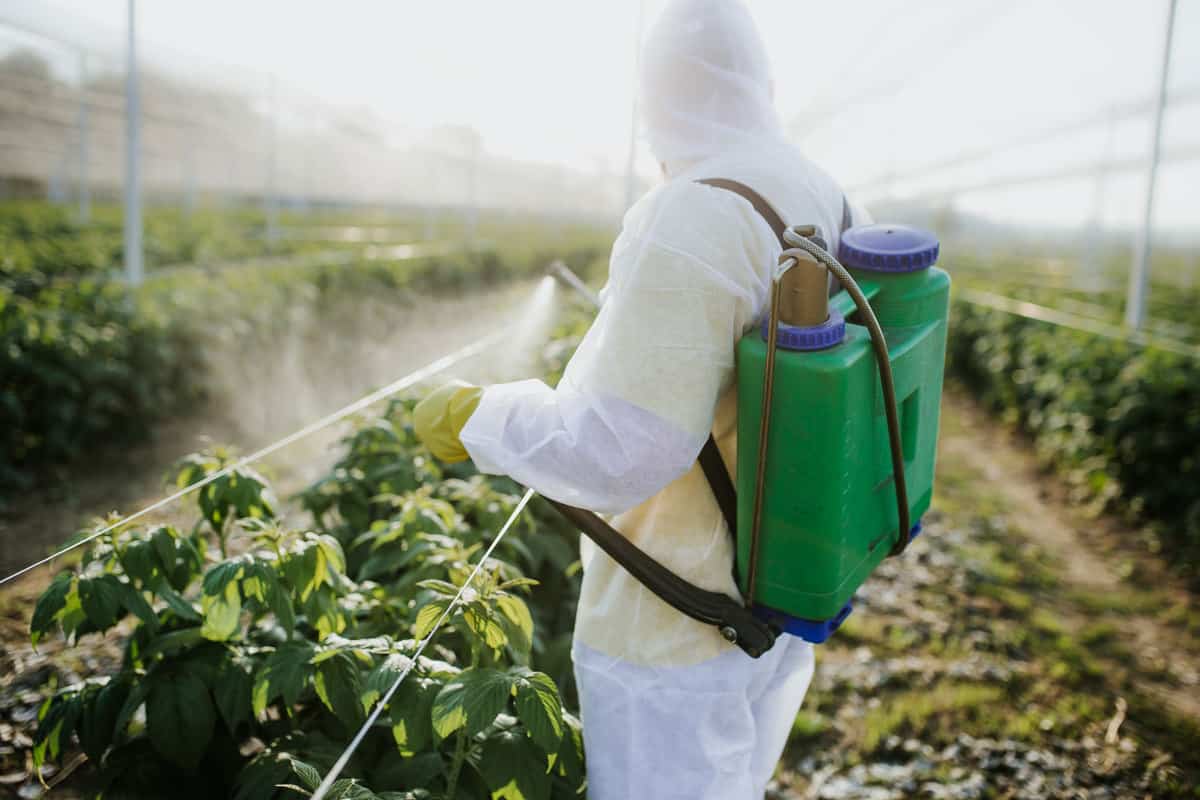
Pesticide is an extensive term that includes all the different types of pest control. An insecticide is a common type of pesticide that explicitly targets insects.
There are different ways to do pesticide categorization. One way to do classification is by the pest targeted. The nuisance is usually found in the base of the name since "cide" means to kill. For example, insecticides kill insects.
Another way of organization is by the active ingredient. Many different chemicals are approved active ingredients but fall into either conventional, antimicrobial, or biopesticides.
Next, one can separate them into categories based on specific usage sites; agriculture, garden, home, etc.
The final classification method uses the delivery method utilized for pest control. Examples would include fumigants, repellants, attractants, and so forth.
Whether you use the specific type or the catch-all term of pesticide, they all kill unwanted pests.
What Is A Pesticide?
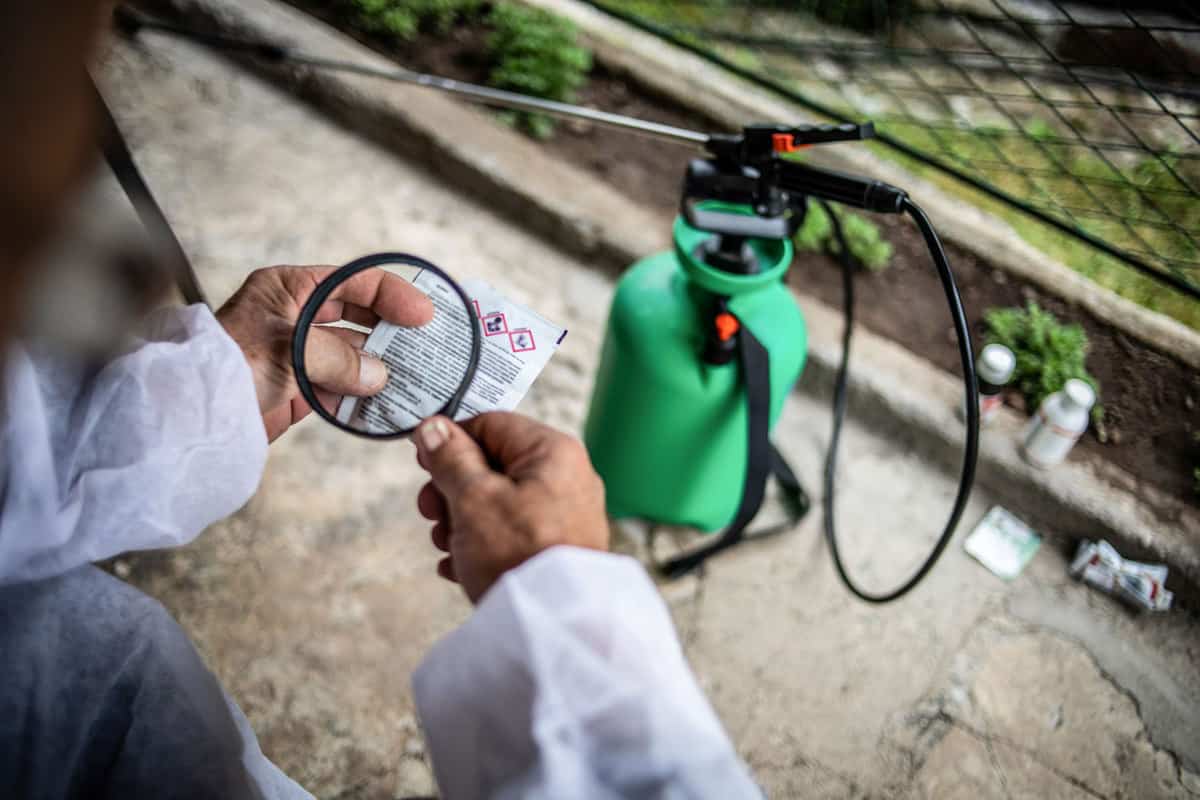
A pesticide's legal definition states it is a substance used to prevent, destroy, repel, or mitigate any pest. Pesticides spark controversy but include common everyday items that surprise you, like mothballs, disinfectant sprays, swimming pool treatments, bleach, antibacterial hand soaps, and hand sanitizer.
In ancient times, salt and burnt sulfur protected crops from pests, but most people wouldn't think to classify them as pesticides.
Below is a comprehensive list of pesticide examples compiled by the EPA, including the target pest that each kills or controls. This list may help give you a better understanding of pesticides.
Common Pesticides
- Insecticides - kill insects and arthropods.
- Herbicides - kill unwanted weeds and plant life.
- Fungicides - kill blights, mildew, mold, and rust.
- Rodenticides - kill mice and rodents.
Lesser-Known Pesticides
- Algicides - kill algae in bodies of water.
- Antifoulants - kill barnacles and other underwater organisms that attach to surfaces.
- Antimicrobial - kills bacteria and viruses.
- Attractants - lure and trap pests using bait.
- Biopesticides - natural plant, animal, or mineral materials pesticides.
- Biocides - kill microorganisms.
- Defoliants - promote the dropping of leaves or foliage.
- Desiccants - promote the drying of living tissue.
- Disinfectants and sanitizers - kill or inactivate microorganisms that cause disease.
- Fumigants - kill pests using gas or vapor.
- Insect growth regulators - disrupt the life stages of insects or processes of insects.
- Miticides - kill mites.
- Microbial Pesticides - use of microorganisms to kill pests.
- Molluscicides - kill snails and slugs.
- Nematicides - kill nematodes (root-eating organisms).
- Ovicides - kill the eggs of pests.
- Pheromones - disrupt the mating process of pests.
- Plant Growth Regulators - alter the life cycle of plants.
- Plant Incorporated Protectants - substances created by adding genetic material to plants.
- Repellants - repel pests.
Are There Harmful Effects To Using Pesticides?
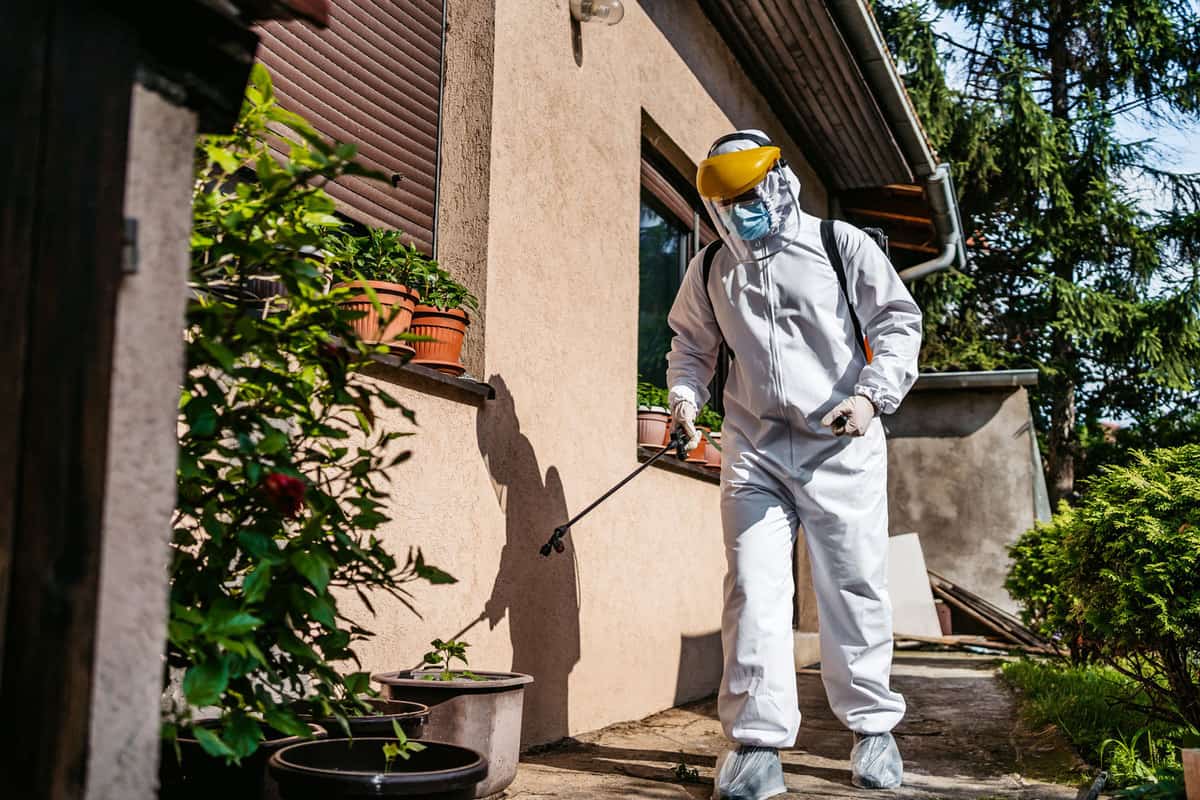
Pesticides are necessary because they help regulate specific plant or animal life that can spread disease and threaten public health. They also help protect our food sources grown by farmers.
According to the EPA, registered pesticides will not harm people, non-target specimens, or the environment when used according to label directions.
Pesticides must adhere to federal regulations by the Environmental Protection Agency (EPA) and the Federal Insecticide, Fungicide, & Rodenticide Act (FIFRA) to help ensure public health safety,
Pesticides must go through a registration process that includes a thorough evaluation of their ingredients, use, storage, disposal, and potential health effects.
The EPA also determines labeling requirements, including instructions for proper usage and safety warnings to inform users of potential dangers.
As part of a safety monitoring process, EPA partners with the National Pesticide Information Center in Oregon for continuous research and ongoing studies to determine if pesticide exposure leads to adverse health effects in humans. Outside stakeholders also conduct research studies based on concerns over pesticide exposure.
Some data indicate that children can be at risk of neurodevelopmental effects from exposure to chemical pesticides. In addition, active lawsuits hope to hold pesticide manufacturers responsible for similar medical issues discovered in people who used their products.
Suppose you have concerns about the use of Pesticides. In that case, the National Institute of Environmental Health Sciences publishes a listing of natural pesticide alternatives that includes recipes for solutions for use on certain pests based on safer substances like borax honey, essential oils, and herb plants.
To Finish
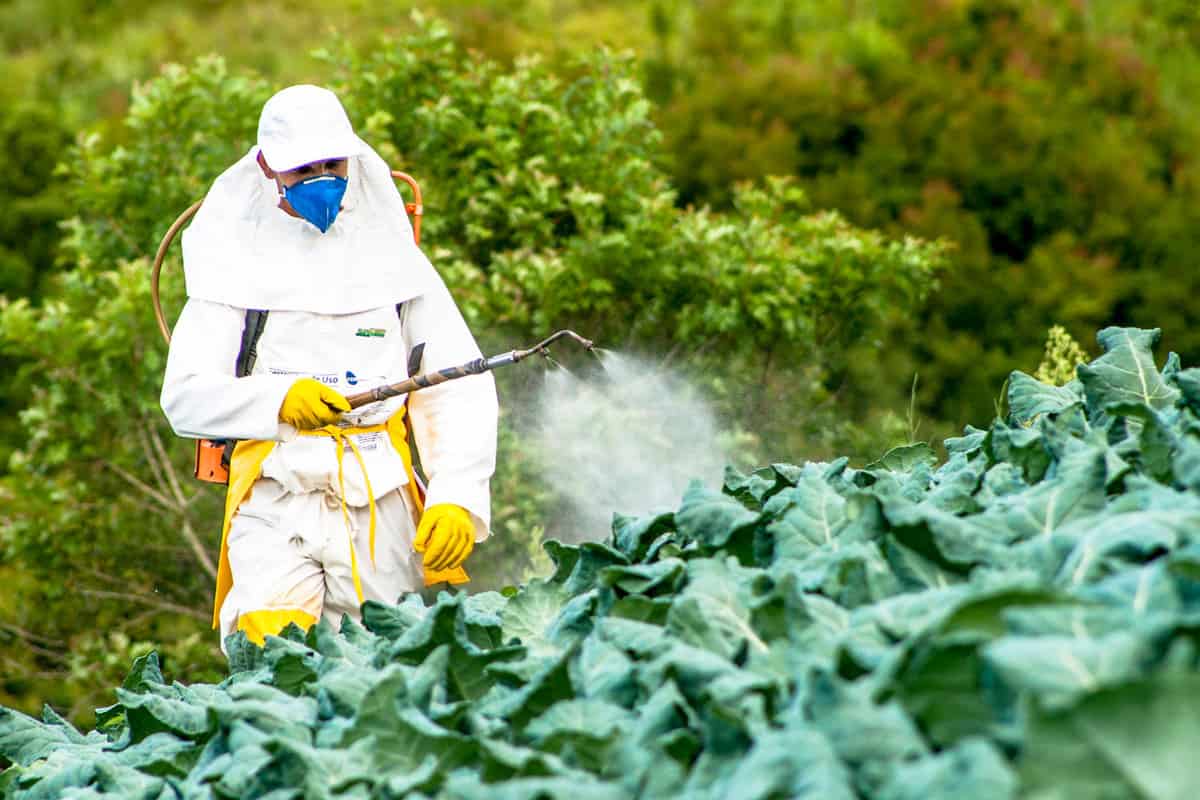
Pesticides kill the pests that invade our homes and gardens. That said, if you're worried about the rain washing it away, research whether it is water-soluble or activated by water.
If you have more interest in eliminating issues caused by rain, check out How Do You Protect a Terrace, Patio, or Roof Garden From Rain?
If you need more information about additional ways to protect your plants, consider 8 Best Products For Treating Red Spider Mites.
